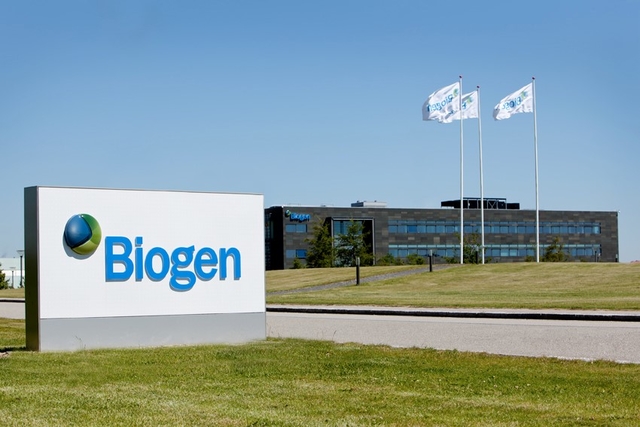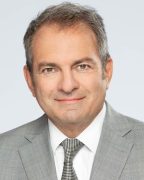Vounatsos heading for exit as Biogen sidelines Aduhelm

Biogen has announced a major revamp of its business that will see chief executive Michel Vounatsos depart the company, and all commercial activities related to troubled Alzheimer's therapy Aduhelm cease.
[caption id="attachment_90661" align="alignright" width="144"] Michel Vounatsos[/caption]
Michel Vounatsos[/caption]
The headline news in the company's first-quarter results statement (PDF) was Vounatsos' departure, although he will remain at the helm of Biogen until a new CEO is found to help oversee a revitalisation of the company.
First-quarter revenues fell 6% to just over $2.5 billion as top earners Ocrevus (ocrelizumab) for multiple sclerosis and Spinraza for spinal muscular atrophy both came under competitive pressure – without any prospect of meaningful Aduhelm (aducanumab) sales to come.
Biogen has been rocked by the decision to limit use of Aduhelm to people enrolled in clinical trials in the US – despite the controversial FDA approval last year – as well as pushback from regulators in Europe and Japan.
Vounatsos couched the decision to leave in favourable terms, saying he will go "at a time of promise for Biogen, with noteworthy potential for value creation," although there's no doubt turning the business around could be a challenge.
Biogen's chair Stelios Papadopoulos said it is "the right time to transition to a new leader who will build Biogen's next chapter on the strong foundation existing today."
Getting rid of Aduhelm's commercial apparatus will trim $500 million off Biogen expenses, adding to another $500 million cost-reduction drive launched earlier this year, and the company has just shored up its balance sheet to the tune of $2.3 billion by completing the sale of its share in biosimilars joint venture Samsung Bioepis.
It will continue to fund some regulatory and R&D activities for Aduhelm, including its ENVISION post-marketing trial of the drug, which needs to be positive if it is to have any hope of broadening its use.
Biogen meanwhile said it is still committed to follow-up Alzheimer's therapy lecanemab, and is planning to complete a rolling submission to the FDA in the second quarter along with partner Eisai while it crosses its fingers for positive results in the Clarity AD trial in the autumn.
With prospects for entire anti-amyloid class under a cloud, greater importance has been attached to zuranolone, its Sage-partnered drug for depression which has just started a rolling submission to the FDA, although there is still debate about the commercial potential of that programme.












